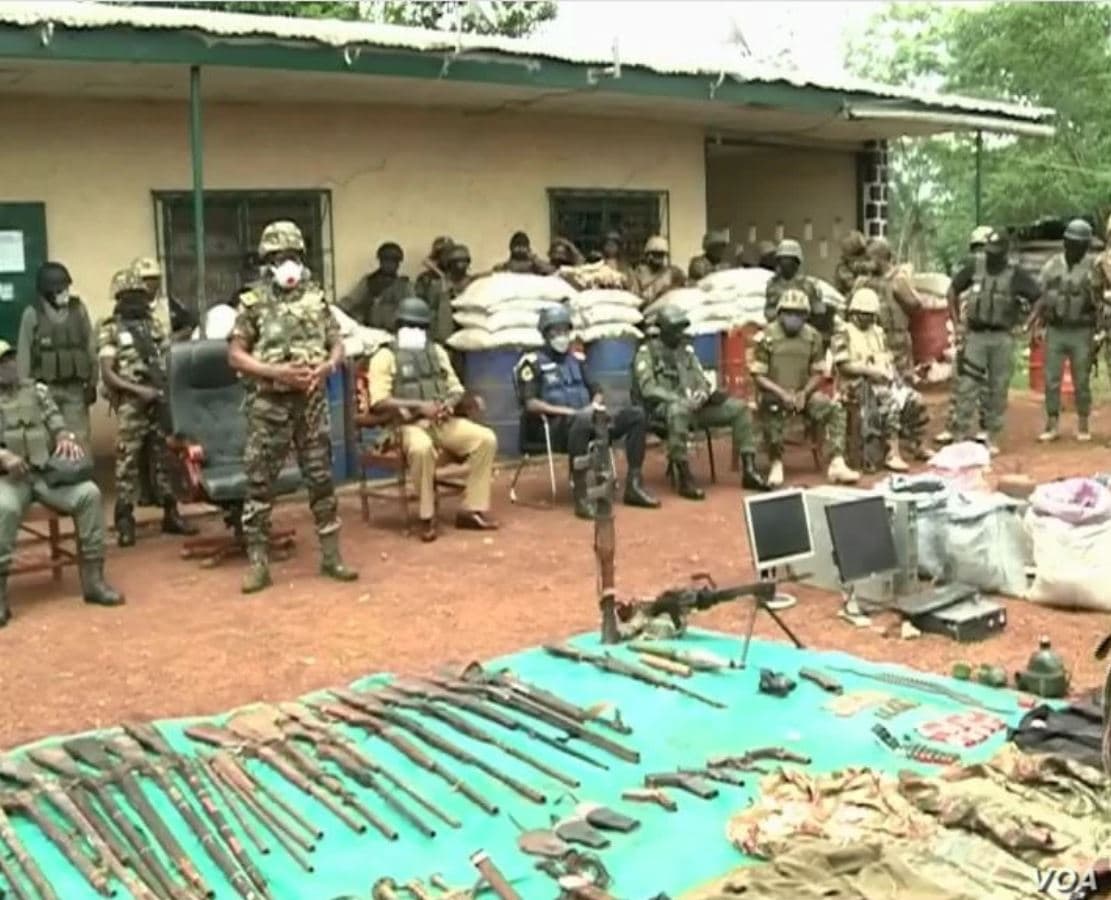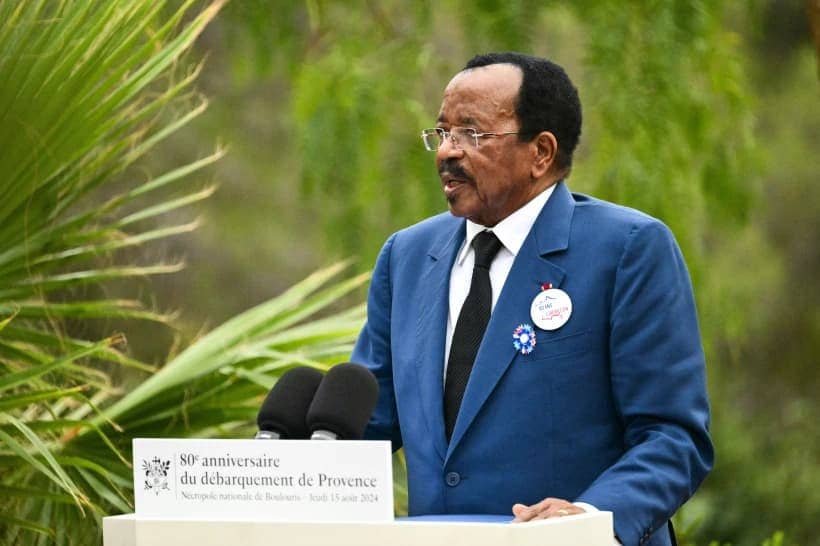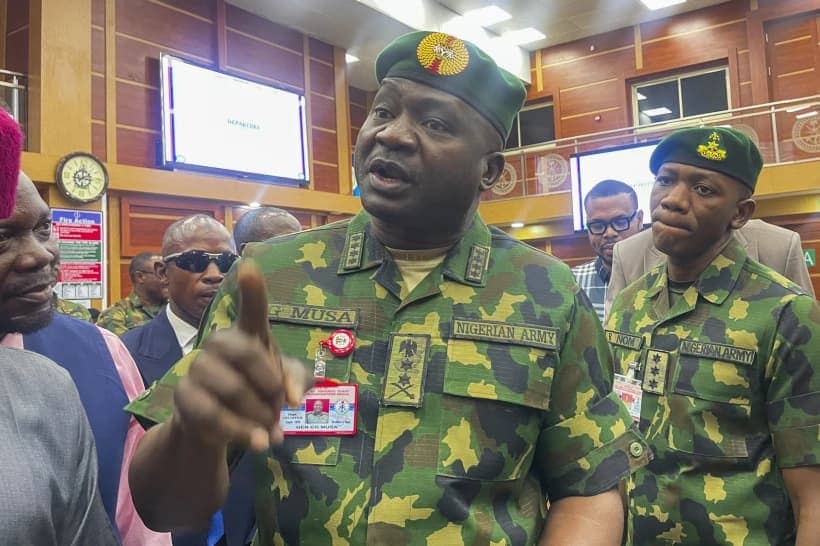YAOUNDÉ, Cameroon – After five years, the international community has been “too silent” about Cameroon’s Anglophone crisis, according to a leading Catholic charity.
Cameroon’s two English-speaking regions have been ravaged by violence since the violent suppression of a series of demonstrations against the imposition of French – the majority language in Cameroon – the Anglophone regions’ common law and British-based education system.
At least 3,500 people have been killed in the conflict, and at least 700,000 more displaced. In addition, rebels have shut down the education system in the two regions, burning schools and kidnapping students and staff.
Both the insurgents and government troops have been accused of grave human rights abuses, with the civilian population caught in the middle.
“So far, the international community remains too silent considering the gravity of the crisis,” said a representative of Franciscans International, who wished to remain unnamed for security reasons.
“For political, historical and economic reasons, States remain reluctant to take the lead on an international condemnation of the ongoing violence occurring in Cameroon,” the official told Crux.
Since the crisis begun, a few countries, including the United States, have recognized and condemned atrocities committed in Cameroon, but the Franciscan International official said international actors “remain too shy as the issue has not been deeply discussed at the UN Human Rights Council.”

“Cameroon’s diplomatic force knows how to use its political links to slip below the radar of certain international institutions, which is the case with the UN Security Council. Despite pressure from civil society organizations and a few states, the issue was never discussed by members of the Council,” he told Crux.
“The [UN Security Council], beyond putting the problem on its agenda, should take concrete measures to condemn crimes and sexual violence perpetrated during a conflict. The lack of international attention to the Anglophone crisis is one of the factors which perpetuate the ‘feeling of international impunity’ on the part of the Cameroonian authorities. A stronger media exposure would increase international pressure on the country to change the situation quickly,” he said.
Recently, Human Rights Watch reported that at least 20 women were raped in the village of Ebam in the country’s South West region on March 1, 2020.
The report said the women were raped by government soldiers in an operation in which one man was killed and 35 others arrested.
“One year on, survivors of the Ebam attack are desperate for justice and reparations, and they live with the disturbing knowledge that those who abused them are walking free and have faced no consequences.” said Ida Sawyer, deputy Africa director for Human Rights Watch.
The Franciscans International official told Crux that the HRW report “sadly illustrates the gravity of the so-called Anglophone crisis in Cameroon, and I will analyze it through a human rights lens.”
“The report perfectly shows how the Cameroonian government commits a set of gross human rights violations by act and omission,” he said.
“In Ebam, the national state army was responsible for murders, physical attacks and sexual assaults against women. This constitutes direct violations of several human rights provisions included in the Cameroonian national constitution preamble such as the right to life, to physical and moral integrity; the inviolability of the home and the protection of minorities, here the Anglophone minority,” he added.
Noting that Cameroon was signatory to various international instruments that guarantee human rights, he said the country’s government was failing to live up to these expectations.
“The state can be held responsible for omissions by the lack of access to physical and psychological health for victims of sexual assault, as well as through the absence of proper investigation, prosecution, reparation and compensation for victims condemning the crimes, even though we may consider the lack of governmental action as a deliberated act from the government,” he said.
“Access to justice and effective remedies, as fundamental procedural rights, constitute a safeguard allowing reparation when the State fails to fulfill its material human rights obligations. The lack of prosecution of the authors of the crimes illustrated by HRW thus shows the gravity and depth of the human rights crisis,” the Franciscans International official said.
He said the Ebam attack once more highlighted the “gross violation of women’s rights” taking place during the Anglophone crisis.
“Women and girls are directly targeted through arsons, property destructions, and rapes. These attacks against women constitute a violation of several international human rights law instruments including the Convention on the Elimination of all forms of Discrimination Against Women (CEDAW), ratified by Cameroon,” the official added.
“This repeated sexual violence against women intends – according to the military’s logic – to weaken a so-called opposing party and to affect the whole communities. But of course, the first victims are civilian women and girls, who do not have any link with the separatist forces and are deeply wounded physically and mentally,” he said.
The Vatican’s top diplomat, Cardinal Pietro Parolin, visited Cameroon, including the Anglophone North West Region, at the end of January to call for peace and reconciliation in the country.














